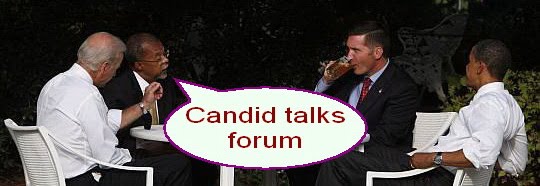2011 Budget: Big Malaysia is back
Datuk Seri Najib Razak’s Budget 2011 speech today confirmed the return of big Malaysia, with a slew of announcements headlined by the construction of a 100-storey tower in the heart of Kuala Lumpur and the widely-expected Mass Rapid Transit (MRT) system for the city.
The prime minister appeared today to reach for the old mega-project playbook, particularly through real estate plays, in his bid to lift the economy towards high-income status.
This would disappoint Malaysians hoping for more radical reforms in terms of upgrading the nation’s productive and innovative capacities.
Among large construction projects that will kick off under the 2011 Budget are the RM43 billion new KL MRT project; the RM5 billion 100-storey Warisan Merdeka tower; the RM26 billion KL International Financial district; the RM3 billion integrated eco-resort in Karambunai, Sabah; construction of multiple new highways; and the development of the 1,084-ha Malaysian Rubber Board land in Sungai Buloh.
The 2011 Budget was deemed a dipstick of the current administration’s commitment to reform but the highlights appeared to be largely big-ticket construction projects rather than commitments to drastically restructure the economy by revamping efficiency, productivity and innovation.
Mega-projects also characterised Malaysia’s development under the 22-year Mahathir administration, which featured the construction of the RM25 billion Putrajaya administrative centre that has been panned as “extravagant”, and the troubled RM7.3 billion Bakum Dam.
Under Tun Dr Mahathir Mohamad, the country also saw the construction of the iconic Petronas Twin Towers, which, when completed, was the tallest buildings in the world.
While Najib stressed today that the private sector should lead economic growth and the government’s bold moves to spend on infrastructure should boost investor confidence, some observers complained that there were no efforts cut down the size of government’s operational expenditure.
Chief executive of the Institute for Democracy and Economic Affairs, Wan Saiful Wan Jan, noted that 75 per cent of the government’s budget — RM163 billion — was for operational expenditure.
“This means the government is committed to maintaining a bloated civil service, with civil servants devouring 75 per cent of the allocation!” he said in a statement to the media.
“I do not see how this Budget is coherent with the prime minister’s intention to let the private sector lead the economy. It seems like the size of government is going to be as big as ever, if not bigger.”
He added that the Budget looked very much like a preparation for a general election.
“There are promises for more money for JKKK, KAFA teachers, and imams, as well as price cap for PLUS tolls, and various other ‘carrots’ are being dangled to voters,” said Wan Saiful.
The prime minister insisted, however, the Budget was designed to meet the aspirations of the public and that the government would not take the easy way out or sacrifice the nation’s long-term interest for short-term popularity.
“We are not dreamers,” he said in his budget speech today. “We are realists. Our success is not mere coincidence but the result of clear and careful planning as well as firm implementation.”
Budget 2011: What’s up, what’s down
Najib, who is also finance minister, did not raise sin taxes for alcohol as widely expected, although cigarette duties went up on October 1.
The only downside of the Budget 2011 proposals is a one per cent increase in service tax, from five per cent to six per cent, and a new six per cent service tax for paid television services.
At a glance, here are the ups and downs of Budget 2011.
UP
Budget total: Up 2.8 per cent to RM212 billion.
Service tax: Up to six per cent, from five per cent.
New service tax for paid TV broadcasting service: Six per cent.
Maternity leave: Up to 90 days, from 60 days.
PhD-qualified academic staff in research universities: Up to 75 per cent.
PhD-qualified academic staff in public institutions: Up to 60 per cent.
Minimum wages for security guards: Up to RM500-RM700, from RM300-RM400.
Monthly allowance for JKKK and JKKP chairman: Up to RM800, from RM450.
Meeting attendance allowance for JKKK committee members: Up to RM50, from RM30.
Monthly allowance for imams: Up to RM750, from RM450.
Monthly allowance for KAFA teachers: Up to RM800, from RM500.
Civil servant funeral arrangement assistance: Up to RM3,000, from RM1,000.
Loan for civil servants for additional works on low-cost houses: Up toRM20,000, from RM10,000.
Maximum loan eligibility for civil servants: Up to RM450,000, from RM360,000.
DOWN
Permanent residence application submission: Down to five years, from 10 years.
Property registration process: Down to one day, from 30 days.
Stamp duty exemption for first-time house buyers: 50 per cent for houses not exceeding RM350,000.
Stamp duty exemption on loan agreement instruments: Down to 50 per cent.
No increase of PLUS highways toll rates for the next five years.
Mobile phones now exempt from 10 per cent sales tax.
Five to 30 per cent import duties on 300 goods preferred by tourists and locals to be abolished.
Exemption of import duties and sales tax on broadband equipment extended until 2012.
Exemption of import and excise duties on hybrid, electric cars and motorcycles.
Tax exemption on income from trading of Certified Emission Reductions certificatea extended until 2012.
Excise duty exemption on national vehicles for the disabled: 100 per cent, from 50 per cent.

No comments:
Post a Comment